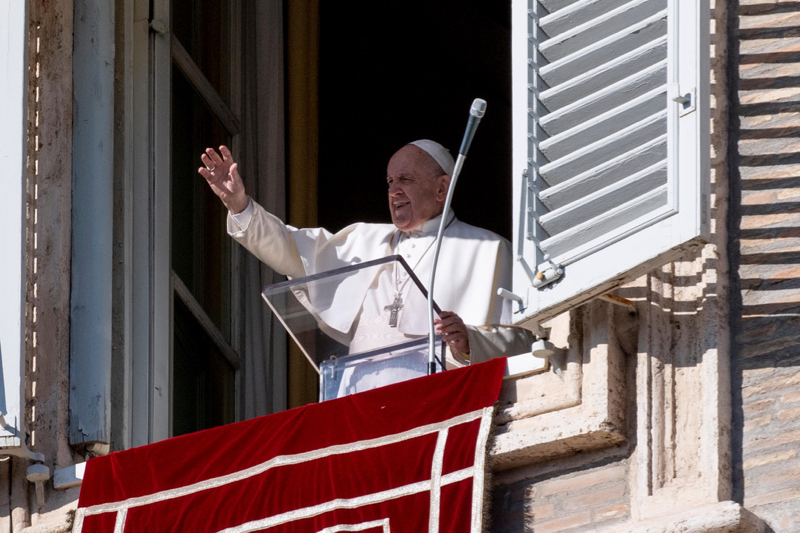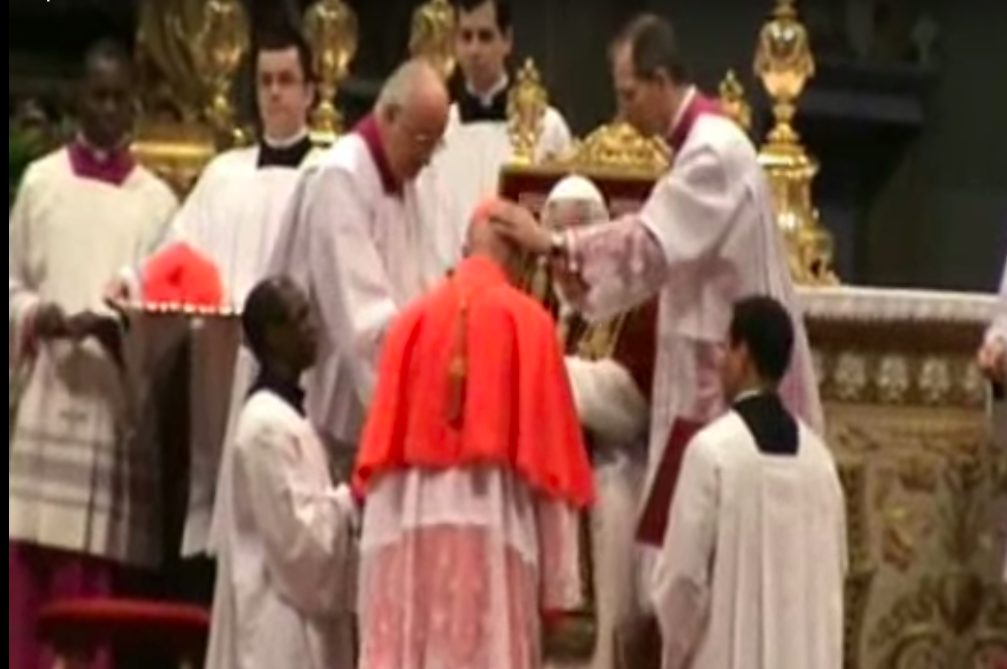Maltese Cardinal Prosper Grech, an Augustinian priest and expert on the fathers of the early church, died yesterday at the Santo Spirito Hospital near the Vatican. He was 94.
In a message of condolence to the prior general of the Augustinians, Pope Francis said he always had "great esteem" for the cardinal, "both because of his personal witness of Christian and consecrated life, as well as for his exemplary service to the formation of new generations, especially of priests."
Cardinal Grech's funeral is scheduled for Jan 2 in St Peter's Basilica with Cardinal Giovanni Battista Re, vice dean of the College of Cardinals, presiding.
Pope Francis is scheduled to lead the rite of final commendation at the end of the funeral Mass.
The cardinal was a "wise and compassionate religious" with a "great sense of humour and humanity", said a statement released by the bishops of Malta: Archbishop Charles Scicluna, Auxiliary Bishop Joseph Galea-Curmi and Bishop Mario Grech, apostolic administrator of Gozo.
Although he already was over 80 and therefore ineligible to vote in the conclave to elect a successor to Pope Benedict XVI in March 2013, the cardinals chose Cardinal Grech to give the first meditation inside the Sistine Chapel when they gathered for the election.
Five months later, the Vatican newspaper published the text of Cardinal Grech's talk, which included reminders of the importance of presenting the Catholic faith in its entirety, the need to recognise the errors of church members and the need for unity within the Catholic community.
The church is called to proclaim the kingdom of God and the good news of salvation through Christ, he told his fellow cardinals.
"The church does this presenting the Gospel without shortcuts, without diluting the word."
Listing threats to the Catholic Church, the cardinal first cited a general lack of understanding of church teaching. But he also saw a gathering storm of threats to the church's unity.
"Between ultra-traditionalist extremists and ultra-progressive extremists, between priests rebelling against obedience and those who don't recognise the signs of the times, there always will be the risk of small schisms that not only damage the church, but go against the will of God," he said.
The church's mission also is threatened by the evil and criminal behaviour of some of its members, especially priests, he continued.
In facing the clerical sexual abuse crisis, "the church must humble itself before God and men and try to uproot the evil at any cost. Today many people are not able to come to believe in Christ because his face is obscured or hidden behind an institution that lacks transparency."
Stanley Grech was born in Birgu, Malta, Dec. 24, 1925. He took the name Prosper when he entered the Augustinians in 1943. He was ordained to the priesthood in 1950 at Rome's Basilica of St. John Lateran.
After studies in Malta, he moved to Rome, where he earned his doctorate in theology from the Pontifical Gregorian University and a licentiate in sacred Scripture from the Pontifical Biblical Institute.
The cardinal also held a diploma in educational philosophy from the University of Fribourg, Switzerland, studied Hebrew at England's Oxford University and did research on Maltese literature at Cambridge University.
In 1965, he was appointed dean of the new Augustinian Theological Institute in Rome, which operated under the auspices of the theology faculty at the Pontifical Lateran University. In 1969, the future cardinal founded the "Augustinianum" Institute for Patristic Studies, where he served as dean from 1971 until 1979.
On Jan. 6, 2012, Pope Benedict XVI announced he was making Father Grech a cardinal. The cardinal-designate was ordained a bishop one month later and was created a cardinal Feb. 18, 2012.
Cardinal Grech's death leaves the College of Cardinals with 223 members from 90 countries; 124 of the cardinals are under the age of 80 and therefore eligible to vote in a conclave to elect a new pope.



 Loading ...
Loading ...